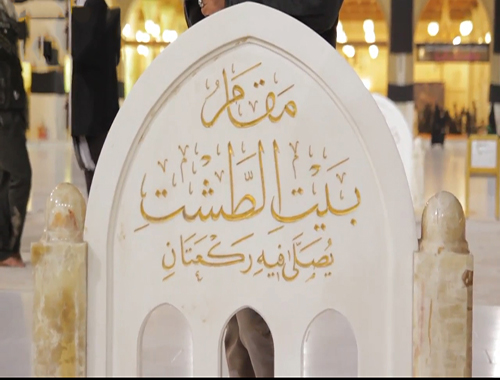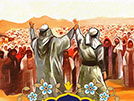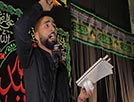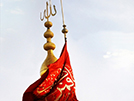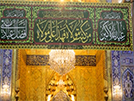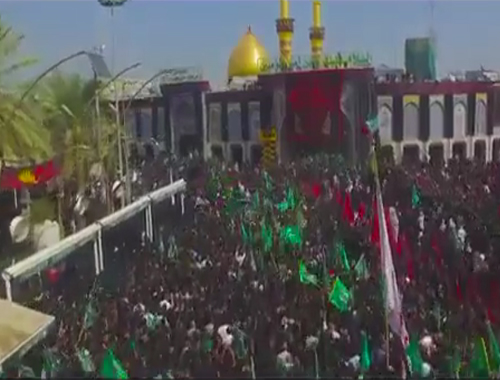
Abu Bakr, son of Imam al-Hassan son of the Commander of the Faithful (A.S), came out. His first name was Abdullah al-Akbar [Abdullah senior] and his mother was Ramla. He fought till he was killed.
After the latter, his full-blooded brother, Qasim, came out. He was a lad who had not yet come of age. When Hussain (A.S), looked at him, he hugged him and wept. Then he permitted him to fight, so he came out with a face looking like a full moon bearing a sword and wearing a shirt and a mantle. On his feet he wore sandals. He had to fight on foot. The sandal's string on his left foot was cut off, so he, the son of the great Prophet (P.B.U.H&H.P) hated to walk bare-footed on the battlefield. He, therefore, stopped for a moment to tie his sandal6, regarding those enemies as no more valuable than his own sandal, paying no heed to their multitude, feeling unconcerned about their thousands.
As he was thus engaged, ` Amr Ibn Sa'd Ibn Nafil al-Azdi attacked him. Hamid ibn Muslim asked him: “What do you want to do to this lad? Are you not satisfied to see the entire crowd that surrounds him?”
He said: “By Allah I shall attack him!”
He hit Qasim with his sword. The lad fell face-long crying out: “O uncle!”
Hussain (A.S) came out to his help like an angry lion and struck Amr with his sword. Amr tried to avoid it with his arm, so the Imam cut it off from the elbow, causing him to let out a very loud scream which was heard by the entire army. The cavalry of Ibn Sa'd charged in order to rescue him. Amr met them face-to-face, causing their horses to trample upon him and to eventually kill him.
After some time the cloud of dust dissipated, so Hussain (A.S) was now seen standing at the head of the young boy, examining his feet. Hussain (A.S) said: “Away with people who have killed you while their opponent on the Day of Judgment will be your grandfather (P.B.U.H&H.P)!” Then he said: “Hard it is, by Allah, that you call upon your uncle to help you and he cannot answer your call, or that he does answer it but cannot do much for you. It is a lone voice whose enemies are numerous and whose supporters are few.” Then he carried him away.
Qasim was on Hussain's chest; his legs were dragging on the ground. Hussain (A.S) put the corpse beside that of Ali al-Akbar and of those of his family who had been killed. Then he raised his eyes to the heavens and supplicated thus:
O Allah! Count their numbers, and do not leave any of them alone, and do not forgive a single one of them! Be patient, O cousins! Be patient, O my Ahlulbayt! You shall never meet any hardship after today at all. [Al-Khwarizmi, Maqtal al-Hussain, Vol. 2, p. 28]
Maqtal al-Hussain- Martyrdom Epic of Imam al-Hussain
By: Abd al-Razzaq al-Muqarram
 The commander of the faithful (A.S) - Islam Guidance
The commander of the faithful (A.S) - Islam Guidance
